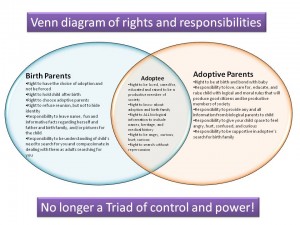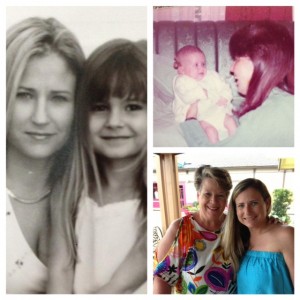 No one that isn’t a mother can imagine the power and intensity that comes with a mother’s pride! It isn’t developed, it is inherent the moment that woman knows she is pregnant. What she can’t possibly know is just how strong that pride is for her sweet baby growing in her tummy. When mommy sets eyes on baby, the pride swells and is almost too overwhelming to handle! Then as that baby grows to toddler to adolescent to young adult and beyond, the pride grows right along with them. My a-mom is seriously one of the most proud moms in the entire world. I’m absolutely convinced of this. She has always bragged ad nauseam to anyone who would listen. She hasn’t eased up at all in our older ages, in fact, she is so proud of my blog that she actually prints out the posts and takes them around with her to show people! She was always that way, so happy to be proud of me. I think that is one reason I was so affected when I disappointed her so badly after dropping out of college right after high school and wasn’t following a good path. Seeing the pain in her eyes because I wasn’t giving her a reason to be proud really hurt me and shamed me. It truly hurt her that she wanted to be proud of me, as it is an inherent thing, but she couldn’t be proud of my behavior. It made me turn around my life because I wanted her to be proud of me. Most everything I did after that was to restore her faith and pride, and thankfully, I eventually did! Her pride was powerful. I needed it and didn’t know that until I had lost it. Now what is interesting is that I’ve seen that a mother’s pride spans all time and situations. As you all know, I have reunited with my n-mom (whom I will call Sara for the purposes of this blog). In the eight years since we’ve been back together, I have felt and witnessed her pride for me, too! From day one, she has been so proud to call me her daughter. I can see in her eyes, the pride she feels for me. Anytime we meet someone, even strangers, she is so happy to introduce me as her daughter. She loves to brag about my accomplishments to these complete strangers, because pride is inherent the moment you know you’re pregnant. I love it when someone is proud of me, who isn’t? And now I have TWO mothers who are so proud to call me their daughter and proud of the things I’ve done with my life. Because that means to much to me, my heart is double full for having both of these mothers in my life and I love them both. I bask in the light of their pride.
No one that isn’t a mother can imagine the power and intensity that comes with a mother’s pride! It isn’t developed, it is inherent the moment that woman knows she is pregnant. What she can’t possibly know is just how strong that pride is for her sweet baby growing in her tummy. When mommy sets eyes on baby, the pride swells and is almost too overwhelming to handle! Then as that baby grows to toddler to adolescent to young adult and beyond, the pride grows right along with them. My a-mom is seriously one of the most proud moms in the entire world. I’m absolutely convinced of this. She has always bragged ad nauseam to anyone who would listen. She hasn’t eased up at all in our older ages, in fact, she is so proud of my blog that she actually prints out the posts and takes them around with her to show people! She was always that way, so happy to be proud of me. I think that is one reason I was so affected when I disappointed her so badly after dropping out of college right after high school and wasn’t following a good path. Seeing the pain in her eyes because I wasn’t giving her a reason to be proud really hurt me and shamed me. It truly hurt her that she wanted to be proud of me, as it is an inherent thing, but she couldn’t be proud of my behavior. It made me turn around my life because I wanted her to be proud of me. Most everything I did after that was to restore her faith and pride, and thankfully, I eventually did! Her pride was powerful. I needed it and didn’t know that until I had lost it. Now what is interesting is that I’ve seen that a mother’s pride spans all time and situations. As you all know, I have reunited with my n-mom (whom I will call Sara for the purposes of this blog). In the eight years since we’ve been back together, I have felt and witnessed her pride for me, too! From day one, she has been so proud to call me her daughter. I can see in her eyes, the pride she feels for me. Anytime we meet someone, even strangers, she is so happy to introduce me as her daughter. She loves to brag about my accomplishments to these complete strangers, because pride is inherent the moment you know you’re pregnant. I love it when someone is proud of me, who isn’t? And now I have TWO mothers who are so proud to call me their daughter and proud of the things I’ve done with my life. Because that means to much to me, my heart is double full for having both of these mothers in my life and I love them both. I bask in the light of their pride.
Monthly Archives: February 2014
Where’s your crystal ball?
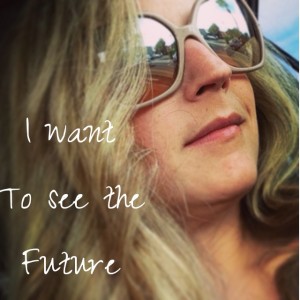 How do we know everything that we’re doing right now is for the best? How can we know the effects our decisions will have on the future? We can’t. We can’t ever know that for certain, unless you own a crystal ball or can see the future, and that is ok. You make the best decisions you can and if that has a negative impact later on, then you deal with it at that time. I had no idea if the things I did for my daughter at 3 years old would positively or negatively impact her behavior at 14 years old. I never even considered when she was so young what my actions were doing to her psyche and how it was going to shape her as a young adult. I just did what I thought was right for her and for me, us. She is 14 years old now and I’m so happy to see that she has become a very well balanced and independent young lady. I know that now, but there was no way of telling then, that I was doing the right things. Every first mother out there is also faced with a decision that has absolutely no predictable outcome, even these days when a first mother can choose the adoptive parents. How can they know for certain that their decision will be a positive impact on that child’s life. Let’s strip the “coercers and forcers” out of this. Let’s strip it down to one mother and one child and the decision that mother makes for the sake of her child. It’s the most important decision of her life, and she has no idea if it’s the right one or not. The only way for her to ever know is reuniting with her child to see for herself. Even though a lot of first mothers push the thoughts of her baby away to keep from hurting so much, it is always there and will never go away. Why should a mother be punished her whole life for a decision she made under extreme pressure and duress? We have to get the laws changed and open up records allowing first mothers to reunite with their children. It is a crime against nature to forever keep them (us) separated. We have to fight to change the legislation keeping records closed. We have to yell, scream, throw fits, and tell our stories to the world, to anyone who will listen. Let’s do it for our first mothers, and let’s do it for ourselves because crystal balls aren’t enough.
How do we know everything that we’re doing right now is for the best? How can we know the effects our decisions will have on the future? We can’t. We can’t ever know that for certain, unless you own a crystal ball or can see the future, and that is ok. You make the best decisions you can and if that has a negative impact later on, then you deal with it at that time. I had no idea if the things I did for my daughter at 3 years old would positively or negatively impact her behavior at 14 years old. I never even considered when she was so young what my actions were doing to her psyche and how it was going to shape her as a young adult. I just did what I thought was right for her and for me, us. She is 14 years old now and I’m so happy to see that she has become a very well balanced and independent young lady. I know that now, but there was no way of telling then, that I was doing the right things. Every first mother out there is also faced with a decision that has absolutely no predictable outcome, even these days when a first mother can choose the adoptive parents. How can they know for certain that their decision will be a positive impact on that child’s life. Let’s strip the “coercers and forcers” out of this. Let’s strip it down to one mother and one child and the decision that mother makes for the sake of her child. It’s the most important decision of her life, and she has no idea if it’s the right one or not. The only way for her to ever know is reuniting with her child to see for herself. Even though a lot of first mothers push the thoughts of her baby away to keep from hurting so much, it is always there and will never go away. Why should a mother be punished her whole life for a decision she made under extreme pressure and duress? We have to get the laws changed and open up records allowing first mothers to reunite with their children. It is a crime against nature to forever keep them (us) separated. We have to fight to change the legislation keeping records closed. We have to yell, scream, throw fits, and tell our stories to the world, to anyone who will listen. Let’s do it for our first mothers, and let’s do it for ourselves because crystal balls aren’t enough.
The Florence Crittenton Home for unwed mothers then.. and now.
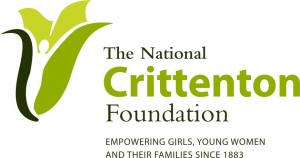 When I received my original birth certificate, it stated that my birth mother had been a resident at the Florence Crittenton Home for unwed mothers. I had never heard of such a thing and instantly felt sad for my birth mother being alone and pregnant in a “home”. I did an internet search on the place and found a registry website for prior residents. There were many women posting to look for other women they had spent their time with, many of them using aliases. It wasn’t until I found my birth mother years later that I learned more about this place and how it was for her. She said there were not that many other girls there at the same time she was and she didn’t develop any strong bonds toward any of them. She hardly remembers the ones that were there. I’ve always found it interesting that her mother would send her there because it was in the same city as where she lived so why not let her live at home? It was a different time then. Either my grandmother was trying to protect her from nasty stares and awful assumptions by hiding her or she was trying to help her by putting her in a place where there were others in that situation where she could maybe find some friendships and a healthy way to deal with what was going to happen. Maybe the Florence Crittenton Home was going to handle the adoption and insisted the birth mothers stay there. I have no idea and will likely never know the answer to that. I was just thinking of that time in my birth mother’s life and decided to do a little more research on the place. I’m glad I did. Since the last time I looked (in 2000), the Florence Crittenton Home has grown and become an active advocate for women to keep their babies. They provide them the resources and skills they need and more importantly – the confidence they need to be a mother. They do also support those women who decide on adoption but it is so nice that they provide a support structure for those women who can keep their children. I think it is a nice balance of support for both sides. In addition to ALL of that (as if that weren’t enough) it takes in girls and/or women who they refer to as “at the margin” of the American dream; meaning women who need a support system to be successful. It also helps young women in the foster system who are parenting also. They are also happy to have our help in the fight for rights and ask for advocates to help. They have several options in how you can help. Please go check out their website: www.nationalcrittenton.org There are also lots of testimonials on there that I enjoyed reading. It is so nice to see a place that was once considered shameful by an old culture blossom into something so positive for young women and building a better tomorrow for all of us.
When I received my original birth certificate, it stated that my birth mother had been a resident at the Florence Crittenton Home for unwed mothers. I had never heard of such a thing and instantly felt sad for my birth mother being alone and pregnant in a “home”. I did an internet search on the place and found a registry website for prior residents. There were many women posting to look for other women they had spent their time with, many of them using aliases. It wasn’t until I found my birth mother years later that I learned more about this place and how it was for her. She said there were not that many other girls there at the same time she was and she didn’t develop any strong bonds toward any of them. She hardly remembers the ones that were there. I’ve always found it interesting that her mother would send her there because it was in the same city as where she lived so why not let her live at home? It was a different time then. Either my grandmother was trying to protect her from nasty stares and awful assumptions by hiding her or she was trying to help her by putting her in a place where there were others in that situation where she could maybe find some friendships and a healthy way to deal with what was going to happen. Maybe the Florence Crittenton Home was going to handle the adoption and insisted the birth mothers stay there. I have no idea and will likely never know the answer to that. I was just thinking of that time in my birth mother’s life and decided to do a little more research on the place. I’m glad I did. Since the last time I looked (in 2000), the Florence Crittenton Home has grown and become an active advocate for women to keep their babies. They provide them the resources and skills they need and more importantly – the confidence they need to be a mother. They do also support those women who decide on adoption but it is so nice that they provide a support structure for those women who can keep their children. I think it is a nice balance of support for both sides. In addition to ALL of that (as if that weren’t enough) it takes in girls and/or women who they refer to as “at the margin” of the American dream; meaning women who need a support system to be successful. It also helps young women in the foster system who are parenting also. They are also happy to have our help in the fight for rights and ask for advocates to help. They have several options in how you can help. Please go check out their website: www.nationalcrittenton.org There are also lots of testimonials on there that I enjoyed reading. It is so nice to see a place that was once considered shameful by an old culture blossom into something so positive for young women and building a better tomorrow for all of us.
Not all adoptees feel the same way about adoption
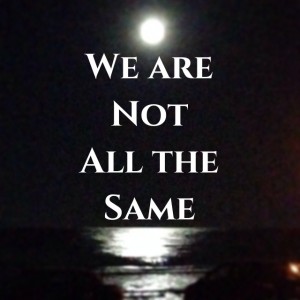 I never see blogs or articles or thought-pieces that take into consideration the adoptees that are happy and content with being adopted. I see LOTS of opinions on how every child should remain with their first mother and/or father but I know there are adoptees out there that would strongly disagree with that. Just as unhappy adoptees have felt like their needs aren’t considered, the happy adoptees aren’t being considered. We can’t base laws or programs or industries on one-sided opinions. I’m not saying that adoption doesn’t need to be reformed. What I’m saying is that just because the happy adoptees aren’t vocal because they are content doesn’t mean they don’t exist. These adoptees would say there is nothing they would change about their own situation. Would you call them uneducated?? Would you call them naïve? Why can’t they just be happy that they’re adopted? They have the right to feel that way, no one should tell them they’re wrong for that. There are many adoptees that suffer from the fact they are adopted and there are many that don’t. When considering adoption reform and whether or not adoption should exist, ALL perspectives should be considered. I’ve written before that studies should be done on adoption that covers all involved and to include cryogenic children. How can you form an educated opinion, and subsequently reform, without considering all perspectives? It’s the only way we can really make a positive change for everyone. We are all different people and there can’t be one blanket answer that fits for every single individual and their personal best interests. Part of the problem is that adoption was never treated as a complicated issue when it is extremely complicated. Let’s all do our due diligence and consider all opinions and feelings, not just what we THINK is the majority opinion. Then, and only then, can we make the best, most positive changes for the best interest of every child.
I never see blogs or articles or thought-pieces that take into consideration the adoptees that are happy and content with being adopted. I see LOTS of opinions on how every child should remain with their first mother and/or father but I know there are adoptees out there that would strongly disagree with that. Just as unhappy adoptees have felt like their needs aren’t considered, the happy adoptees aren’t being considered. We can’t base laws or programs or industries on one-sided opinions. I’m not saying that adoption doesn’t need to be reformed. What I’m saying is that just because the happy adoptees aren’t vocal because they are content doesn’t mean they don’t exist. These adoptees would say there is nothing they would change about their own situation. Would you call them uneducated?? Would you call them naïve? Why can’t they just be happy that they’re adopted? They have the right to feel that way, no one should tell them they’re wrong for that. There are many adoptees that suffer from the fact they are adopted and there are many that don’t. When considering adoption reform and whether or not adoption should exist, ALL perspectives should be considered. I’ve written before that studies should be done on adoption that covers all involved and to include cryogenic children. How can you form an educated opinion, and subsequently reform, without considering all perspectives? It’s the only way we can really make a positive change for everyone. We are all different people and there can’t be one blanket answer that fits for every single individual and their personal best interests. Part of the problem is that adoption was never treated as a complicated issue when it is extremely complicated. Let’s all do our due diligence and consider all opinions and feelings, not just what we THINK is the majority opinion. Then, and only then, can we make the best, most positive changes for the best interest of every child.
The power of culture: The adoption industry/laws driven by shame
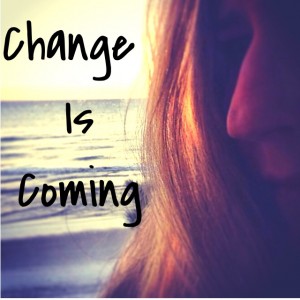 The definition of culture: The arts and other manifestations of human intellectual achievement regarded collectively. In other words, our backgrounds, our experiences, and the values our parents raised us with are all things that shape our brains, which determines how we perceive the world and everything in it. Culture is very powerful. It can be something to be proud of, but unfortunately it can also drives shame for anyone who dares to go against it. It has created shame for people who believe love is blind to gender, it created shame for people who were anything but white Americans, and it created an entire generation of women who felt such an extreme amount of shame that it caused them to give up their babies. People can be so cruel to those that are different or don’t follow cultural “rules”. Culture drove many adoptions and shaped the adoption industry. In the 60’s and 70’s, adoptions were as secret as the inner workings of the CIA. To adopt a child in that day and age, you had to meet in alleyways or cemeteries in the dead of night so that the birth mother could not possibly know to whom the child went. It’s cruel. It’s that culture that also created adoption laws. The first adoption law began in Massachusetts in 1851 and was meant to ensure that the homes were fit and proper for the children. Laws continued to evolve but were mostly focused on the adoptive family and their home. Although it was wonderful that they were protecting the child’s physical well-being, no one was considering the child’s mental well-being. From the beginning, the birth mother was treated like an embarrassment and laws protected their anonymity. The ones making the laws and protecting the laws were affected by that culture, not to mention that the legislators were mostly middle aged white men who most likely couldn’t fathom the emotions connected to something so traumatic as adoption. The birth mothers were afraid to speak up; they felt like there was no way their child would even want to know them. The parents of those birth mothers were driven by society to feel shame about their daughters being pregnant outside of marriage and wanted full secrecy surrounding the situation. Not one of those people, the parents, the pregnant daughters, the lawmakers, the lawyers, the religious services enabling the adoption ever considered how wrong it is to keep someone’s identity away from them. It was a selfish society. Our generation has made great strides in many different areas and driving out shame for people who are different, whether they are same sex partners or mixed race couples or women who are alone and pregnant. We have to keep up the positive change. We have to be loud now that we are grown adoptees and can speak to the affects adoption as had on us. We have to speak up to cause a change in legislature. We have the power to evolve the culture. Change is coming; change for the rights of adoptees.
The definition of culture: The arts and other manifestations of human intellectual achievement regarded collectively. In other words, our backgrounds, our experiences, and the values our parents raised us with are all things that shape our brains, which determines how we perceive the world and everything in it. Culture is very powerful. It can be something to be proud of, but unfortunately it can also drives shame for anyone who dares to go against it. It has created shame for people who believe love is blind to gender, it created shame for people who were anything but white Americans, and it created an entire generation of women who felt such an extreme amount of shame that it caused them to give up their babies. People can be so cruel to those that are different or don’t follow cultural “rules”. Culture drove many adoptions and shaped the adoption industry. In the 60’s and 70’s, adoptions were as secret as the inner workings of the CIA. To adopt a child in that day and age, you had to meet in alleyways or cemeteries in the dead of night so that the birth mother could not possibly know to whom the child went. It’s cruel. It’s that culture that also created adoption laws. The first adoption law began in Massachusetts in 1851 and was meant to ensure that the homes were fit and proper for the children. Laws continued to evolve but were mostly focused on the adoptive family and their home. Although it was wonderful that they were protecting the child’s physical well-being, no one was considering the child’s mental well-being. From the beginning, the birth mother was treated like an embarrassment and laws protected their anonymity. The ones making the laws and protecting the laws were affected by that culture, not to mention that the legislators were mostly middle aged white men who most likely couldn’t fathom the emotions connected to something so traumatic as adoption. The birth mothers were afraid to speak up; they felt like there was no way their child would even want to know them. The parents of those birth mothers were driven by society to feel shame about their daughters being pregnant outside of marriage and wanted full secrecy surrounding the situation. Not one of those people, the parents, the pregnant daughters, the lawmakers, the lawyers, the religious services enabling the adoption ever considered how wrong it is to keep someone’s identity away from them. It was a selfish society. Our generation has made great strides in many different areas and driving out shame for people who are different, whether they are same sex partners or mixed race couples or women who are alone and pregnant. We have to keep up the positive change. We have to be loud now that we are grown adoptees and can speak to the affects adoption as had on us. We have to speak up to cause a change in legislature. We have the power to evolve the culture. Change is coming; change for the rights of adoptees.
The adoptee struggle…. what did you do when you had your birth parent’s contact info?
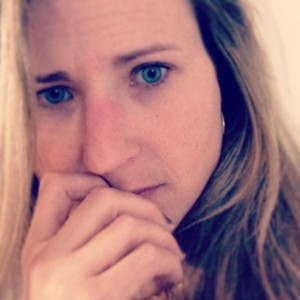 It took me THREE DAYS to call my birth mother once I had her number, and permission, to call her. I was thirty years old, had wanted to find her since I was in the 4th grade, finally had the key to my being, and it took my three days to make that call. I got a call on a weekday from the agency I had hired to find her and I was actually at Wal-Mart picking up a few things for dinner. I can pinpoint the exact spot in Wal-Mart where I was standing when I answered my cell phone, I know exactly what I was wearing, and I remember exactly how my stomach began doing flip flops as they described finding her. That phone call was to tell me that they had found her and she had requested a few days to tell her husband and son. Only her sisters, mother, and a couple of her closest friends had ever known about the adoption. A few days later, I get another call that she had told her family and gave her permission to give me her number and adress. They told me her name and a little bit about her, where she lived and abut her family…. well, my family. And then I sat on the information for three days. Having a name makes that person real and no longer a myth. Adoptees have had their whole lives to deal emotionally with the myth but a whole new set of emotions present themselves when the person is real. Knowing my birth mother was a real person was surreal to me. Funny that I felt more familiar with the person I had made up in my mind all those years. Now, all of a sudden, she was a stranger and I was terrified of that stranger. I was now wondering what I was doing?? I asked myself, what are you doing calling a complete stranger just because she supposedly gave birth to you thirty years ago? I questioned myself and everything I had thought and believed since that day my mom told me about my adoption. It just couldn’t be real, but it certainly was and when I finally could face that act then fear set in. I wondered if contacting her would open a can of worms that I didn’t want to open. I didn’t know her. I didn’t know if she was a nice person, or mean person. I didn’t know if we would get along. The what-if’s plagued my mind and I went back and forth on whether or not I should pass the point of no return… and call her. What was that phone call going to bring? I found myself pushing it out of my head when it creeped into my thoughts and I realized, I just needed time, which is crazy since I had already waited thirty years. On that third day, I made up my mind and picked up the phone. My heart was POUNDING as I dialed her number. I silently prayed that she wouldn’t answer and God was listening because the answering machine picked up the call. When I heard her sweet southern drawl on the answering machine, I knew it was all going to be ok. I struggled to quickly find the appropriate words for my message but I did get it out and she called me later that day. It was AMAZING to hear her voice on the other end of the line and all the doubt and fear flew out of me. It was going to be ok, which is what I’m sure she told me in the short time we were together before they took me away to meet my family and she was right.
It took me THREE DAYS to call my birth mother once I had her number, and permission, to call her. I was thirty years old, had wanted to find her since I was in the 4th grade, finally had the key to my being, and it took my three days to make that call. I got a call on a weekday from the agency I had hired to find her and I was actually at Wal-Mart picking up a few things for dinner. I can pinpoint the exact spot in Wal-Mart where I was standing when I answered my cell phone, I know exactly what I was wearing, and I remember exactly how my stomach began doing flip flops as they described finding her. That phone call was to tell me that they had found her and she had requested a few days to tell her husband and son. Only her sisters, mother, and a couple of her closest friends had ever known about the adoption. A few days later, I get another call that she had told her family and gave her permission to give me her number and adress. They told me her name and a little bit about her, where she lived and abut her family…. well, my family. And then I sat on the information for three days. Having a name makes that person real and no longer a myth. Adoptees have had their whole lives to deal emotionally with the myth but a whole new set of emotions present themselves when the person is real. Knowing my birth mother was a real person was surreal to me. Funny that I felt more familiar with the person I had made up in my mind all those years. Now, all of a sudden, she was a stranger and I was terrified of that stranger. I was now wondering what I was doing?? I asked myself, what are you doing calling a complete stranger just because she supposedly gave birth to you thirty years ago? I questioned myself and everything I had thought and believed since that day my mom told me about my adoption. It just couldn’t be real, but it certainly was and when I finally could face that act then fear set in. I wondered if contacting her would open a can of worms that I didn’t want to open. I didn’t know her. I didn’t know if she was a nice person, or mean person. I didn’t know if we would get along. The what-if’s plagued my mind and I went back and forth on whether or not I should pass the point of no return… and call her. What was that phone call going to bring? I found myself pushing it out of my head when it creeped into my thoughts and I realized, I just needed time, which is crazy since I had already waited thirty years. On that third day, I made up my mind and picked up the phone. My heart was POUNDING as I dialed her number. I silently prayed that she wouldn’t answer and God was listening because the answering machine picked up the call. When I heard her sweet southern drawl on the answering machine, I knew it was all going to be ok. I struggled to quickly find the appropriate words for my message but I did get it out and she called me later that day. It was AMAZING to hear her voice on the other end of the line and all the doubt and fear flew out of me. It was going to be ok, which is what I’m sure she told me in the short time we were together before they took me away to meet my family and she was right.
It’s shameful that adoptees are relegated to DNA testing for their heritage
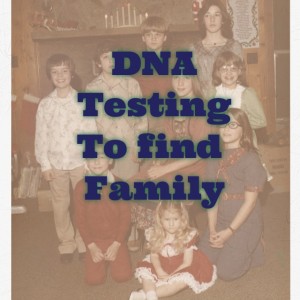 Stop and think about this, most adoptees who want to know where they came from are forced to take a DNA test and hope for the best all because of the antiquated, culturally-driven privacy laws that keep original birth certificates locked up. From what I’ve read, a DNA test can give you lots of answers but sometimes can lead to even more questions. Why should adoptees have to submit themselves to a DNA test when there is a piece of paper that can unlock it all? I realize that taking a DNA test isn’t physically painful but the anxiety and emotions behind it can be. If I weren’t one of the lucky ones that was able to retrieve my original birth certificate, I am certain I would also be taking the DNA test. I wonder what kind of emotions I would go through and I wonder exactly what it would tell me? Do you have to rely on DNA databases for family matches? How many people do you know just goes and submits their DNA to a database for no reason? I understand they are very reliable but how successful are they in finding specific family members? How many of you have done it? I want to hear your stories about it. I want to know how you felt throughout the process and how it ended up for you. Are you angry that you had to go through this process rather than just be given your original birth certificate? I’m sorry for each of you that are forced to do this just to know where you came from. It is a shame that legislation developed over 50 years ago still governs our past and future.
Stop and think about this, most adoptees who want to know where they came from are forced to take a DNA test and hope for the best all because of the antiquated, culturally-driven privacy laws that keep original birth certificates locked up. From what I’ve read, a DNA test can give you lots of answers but sometimes can lead to even more questions. Why should adoptees have to submit themselves to a DNA test when there is a piece of paper that can unlock it all? I realize that taking a DNA test isn’t physically painful but the anxiety and emotions behind it can be. If I weren’t one of the lucky ones that was able to retrieve my original birth certificate, I am certain I would also be taking the DNA test. I wonder what kind of emotions I would go through and I wonder exactly what it would tell me? Do you have to rely on DNA databases for family matches? How many people do you know just goes and submits their DNA to a database for no reason? I understand they are very reliable but how successful are they in finding specific family members? How many of you have done it? I want to hear your stories about it. I want to know how you felt throughout the process and how it ended up for you. Are you angry that you had to go through this process rather than just be given your original birth certificate? I’m sorry for each of you that are forced to do this just to know where you came from. It is a shame that legislation developed over 50 years ago still governs our past and future.
The other silent ones…
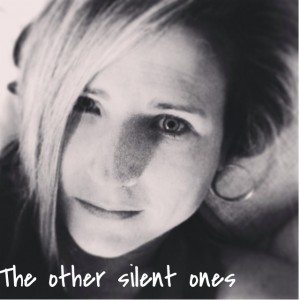 I spoke about the silent ones a few weeks ago but was referring to the sad situation of a birth family member passing before the adoptee gets to meet them. Now I want to address the adoptees that never speak of adoption because they honestly don’t think of it. The gentleman adoptee I interviewed not too long ago that supports adoption and is happy that he was placed for adoption asked me why I named his opinion a “less popular” opinion. I told him it was because he was in the minority and he said to me, “how do you know that”? I initially thought the obvious, because those are the opinions I read all about on social media from other adoptees but then it made me think. What about the ones that have a happy and complete life and never think about the fact they are adopted? More than likely, they’re not all over the internet fighting against adoption or speaking out about the injustices of the industry or that they’re in pain or suffer from being an adoptee therefore, I don’t see their opinions! How many of them are out there? How do I know that there are less of them than the others? I guess I could do research and do some simple math but the point is, I don’t KNOW that his opinion is in the minority and I will probably never know that but it is interesting. How big is the number of silent ones out there who are happy as-is. The primal wound theory doesn’t exist to them, the injustices of the adoption industry they are blissfully ignorant of and why should they know about these things if they are happy? I’m happy for anyone who has peace in their heart and soul. But if you know an adoptee like this, talk to them. We sure could use their help in passing legislation to open our original birth certificate (OBC) records and to make adoption even better. Even the adoptee I interviewed stated he wouldn’t mind having his OBC so let’s talk to people. Another fact I’ve told you before is that 65% of Americans are personally affected by adoption so chances are, someone you’re talking to can get on board with the cause. Just talk to those silent ones. Let’s make our already loud voices even bigger.
I spoke about the silent ones a few weeks ago but was referring to the sad situation of a birth family member passing before the adoptee gets to meet them. Now I want to address the adoptees that never speak of adoption because they honestly don’t think of it. The gentleman adoptee I interviewed not too long ago that supports adoption and is happy that he was placed for adoption asked me why I named his opinion a “less popular” opinion. I told him it was because he was in the minority and he said to me, “how do you know that”? I initially thought the obvious, because those are the opinions I read all about on social media from other adoptees but then it made me think. What about the ones that have a happy and complete life and never think about the fact they are adopted? More than likely, they’re not all over the internet fighting against adoption or speaking out about the injustices of the industry or that they’re in pain or suffer from being an adoptee therefore, I don’t see their opinions! How many of them are out there? How do I know that there are less of them than the others? I guess I could do research and do some simple math but the point is, I don’t KNOW that his opinion is in the minority and I will probably never know that but it is interesting. How big is the number of silent ones out there who are happy as-is. The primal wound theory doesn’t exist to them, the injustices of the adoption industry they are blissfully ignorant of and why should they know about these things if they are happy? I’m happy for anyone who has peace in their heart and soul. But if you know an adoptee like this, talk to them. We sure could use their help in passing legislation to open our original birth certificate (OBC) records and to make adoption even better. Even the adoptee I interviewed stated he wouldn’t mind having his OBC so let’s talk to people. Another fact I’ve told you before is that 65% of Americans are personally affected by adoption so chances are, someone you’re talking to can get on board with the cause. Just talk to those silent ones. Let’s make our already loud voices even bigger.
Repost from Dec 13: My take on the paradigm shift in the adoption triad
I read a blog post on the Huffington Post a few days ago where the author talked about a paradigm shift of power in the adoption “Triad”. In the past, the adoptive parents had all the power but with open adoptions and the voice of adult adoptees getting stronger and louder as we all come together the power is shifting away from the adoptive parents. First of all, the fact that adoptees are coming together as once and making change happen and our voices heard is incredible! To me, that is the most amazing feat and accomplishment we could hope for although there is so much more work to do in adoption reform and civil rights for adoptees. The fact that we are enabling a paradigm shift is also powerful. In the past, the adoptive parents had all the rights and power as our “new” parents. The birth mothers had less power and rights but more than the adoptees because they were protected by anonymity and of course, controlled what was going to happen the child. The adoptee’s rights came last, if at all. It is amazing that we were hopefully given to a loving home but what about our human right to know where we came from and who made us? A loving home with amazing parents can never make up for that loss and not knowing. With all of this said, I think instead of a hierachial “triad”, it should be more like a Venn diagram where both the adoptive parents and the birth parents have rights and responsibilities, but those should converge where the adoptee receives ALL of the benefits, creating our own rights.
Adoptive parents have the right and control to be the legal guardians. Their responsibility is to love, care for, educate and raise that child with logical and moral rules that will produce good citizens and be productive members of society. They should have the right to be present at the birth and allowed to hold the baby after to bond. What the adoptive parents should NOT have the right to do is hide the adoption and any facts associated with the birth family from the adoptee. The adoptive parents should NOT have the right to keep secrets from the child in the name of “protecting” the child’s feelings.
The birth mother should have the right to choose if she is going to place her baby for adoption, not forced to do so by anyone. She should also have the right to choose her adoptive parents, hold the baby after birth, and to leave whatever fun or interesting facts about her and the birth family she so desires. She should NOT have the right to anonymity.
In the middle of this is the adoptee who should have the the benefits of all of those rights and responsibilities, like the right to know what DNA created them and what their heritage is and their biological family medical history, which all seems like a huge “DUH” to me, but unbelievably 47 states still deny adoptees those basic human rights.
Visualizing this theory in Venn form shows protection of everyone involved without sacrificing rights and not making any one person have the most control. The adoption agencies and lawyers should build their adoptions based on this instead of how they can make more money. Just as I talk about how I am a blend of both my biological and adoptive families, the adoptee’s rights should be a blend of the rights and responsibilities of the birth and adoptive parents. Let’s not think about power and control in a triangular form of the triad, but let’s think about rights and responsibiltiies in a Venn format. I may not have all the answers here but it’s a good start. What would you add, or take away in that Venn diagram? Let’s talk…
How many different sides do you have to your personality and how has adoption added to that?
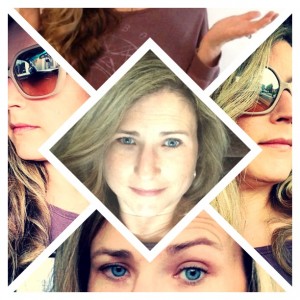 Everyone interacts differently in the different roles they play in life but adoptees have the additional, more complicated role of being a child to four people, instead of just two. I once wrote a paper on the book by Erving Goffman called “Presentation of Self in Everyday Life”. It talks about the many different sides of our personalities that we present to different people based on our perception of our “role” with that person. For example, how I engage with my daughter is different than the way I engage with my husband, or co-workers, or even my step-son! An old friend used to tell me that he hated to see my personality change when I spoke to strangers, like sales people or random people who engaged me in conversation. It was weird to him and told me I was being fake. I disagreed. What he didn’t remember is that I acted the same way when I first met him. Then the more I got to know him, the more comfortable I was with him and he got to know me better. We present ourselves in the way we want someone to perceive us. We act a certain way to effect a certain reaction from someone whether it’s our kids or spouses or parents. It is the presentation of self in everyday life with the different people in your life. It’s an interesting concept and I think if anyone has mastered this, it’s adoptees. Our circumstances sort of double the amount of people we have to present ourselves to and it’s uncharted territory. We have TWO sets of parents, we have two sets of family. Some of us do not know the other set but like ghosts, they’re still in our minds and soul, so we still deal with them even if it’s not face to face. Others of us do know the other set of family and we have to decide how we interact with them. Just as my friend thought I acted “different” to strangers that I encountered, I acted that same way when I met my birth family. My birth family didn’t see the same side of “Liz” that my family saw but there are so many reasons for that. I was just getting to know them, and I wanted them to like me so I put my very best foot forward. Of course it was different than how I act with my family. They’ve known me my whole life so it’s a completely different interaction. As time has passed, I have obviously become more comfortable with my birth family and they’ve gotten to know me in a deeper way. I don’t think I’ll ever interact with them in the same way I interact with my family because it is very different circumstances, which I don’t see as either good or bad; it is what it is. How about you? How many different sides, or roles, do you have?
Everyone interacts differently in the different roles they play in life but adoptees have the additional, more complicated role of being a child to four people, instead of just two. I once wrote a paper on the book by Erving Goffman called “Presentation of Self in Everyday Life”. It talks about the many different sides of our personalities that we present to different people based on our perception of our “role” with that person. For example, how I engage with my daughter is different than the way I engage with my husband, or co-workers, or even my step-son! An old friend used to tell me that he hated to see my personality change when I spoke to strangers, like sales people or random people who engaged me in conversation. It was weird to him and told me I was being fake. I disagreed. What he didn’t remember is that I acted the same way when I first met him. Then the more I got to know him, the more comfortable I was with him and he got to know me better. We present ourselves in the way we want someone to perceive us. We act a certain way to effect a certain reaction from someone whether it’s our kids or spouses or parents. It is the presentation of self in everyday life with the different people in your life. It’s an interesting concept and I think if anyone has mastered this, it’s adoptees. Our circumstances sort of double the amount of people we have to present ourselves to and it’s uncharted territory. We have TWO sets of parents, we have two sets of family. Some of us do not know the other set but like ghosts, they’re still in our minds and soul, so we still deal with them even if it’s not face to face. Others of us do know the other set of family and we have to decide how we interact with them. Just as my friend thought I acted “different” to strangers that I encountered, I acted that same way when I met my birth family. My birth family didn’t see the same side of “Liz” that my family saw but there are so many reasons for that. I was just getting to know them, and I wanted them to like me so I put my very best foot forward. Of course it was different than how I act with my family. They’ve known me my whole life so it’s a completely different interaction. As time has passed, I have obviously become more comfortable with my birth family and they’ve gotten to know me in a deeper way. I don’t think I’ll ever interact with them in the same way I interact with my family because it is very different circumstances, which I don’t see as either good or bad; it is what it is. How about you? How many different sides, or roles, do you have?
